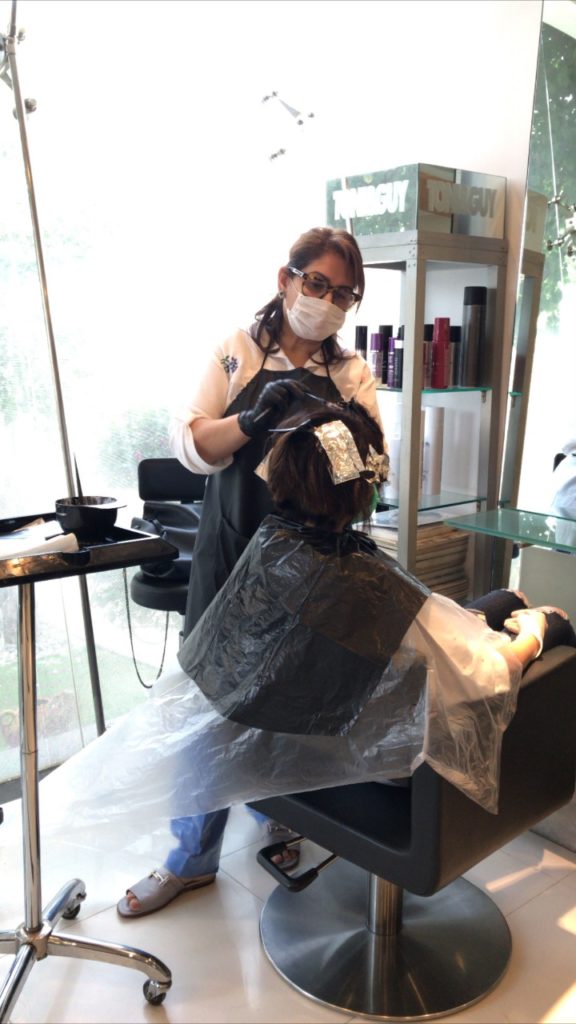After months of social-distancing and lockdowns due to COVID-19, Pakistan’s rate of contagion may be slowing down but the nightmare is far from over. The government has been implementing strange and often inexplicable game plans, which have been affective in some places but not so much in others. Although every industry worldwide has been impacted by coronavirus shutdowns, however, with time most business owners have resumed work under strict guidelines and SOPs. But what about those whose very nature of the job requires them to be at close proximity with the people, such as hairdressers and other hands-on beauty service providers?
The lockdown has been devastating for the professionals associated with the beauty industry. From thriving business set-ups that used to support thousands of households, the salons in Pakistan have turned into deserted places overnight, leaving workers helpless. Despite several requests by the Professional Hair And Beauty Association (PHABA), government officials have still not issued any solid directives about the re-opening of the beauty industry so far.
It’s not a case of vanity or frivolous, high maintenance; the issue is the loss of livelihood of the hundreds of salon workers, most of them being women. Does their income not mean as much as the men selling wares in the market place, because market places are open.
In an exclusive chat with Something Haute, Vice President of PHABA, Saeeda Mandviwalla shared how workers of these beauty salons are coping with the challenges.
“50,000 workers are affiliated with this field from Karachi only and they have been affected by the lockdown. If we consider the numbers from all over Pakistan, then it is expected to go into millions,” she shared.

Majority of these workers are women who belong to underprivileged communities and they live on salaries and tips. Most of them don’t have any cash reserves to live on.
“Most of these women are breadwinners of their households. They are either married and raising their children or single parents; some belong to minorities or low income backgrounds,” Saeeda said adding, “Most of them start working at the age of 18 and their basic salary (market rate) ranges from PKR 25,000 to 60,000 (depending on the salon).”
Read: PHABA appeals for permission to reopen salons that already have strict SOPs in place
Unfortunately, nobody has paid heed to the problems these women have been facing for months. The hair and beauty industry generates a large amount of revenue for the nation and the lack of government support will mean that businesses can only survive on personal savings, investments of entrepreneurs, NGO aid, for so long. According to Saeeda, PHABA has been in touch with them.
“The staff has been kept on board this entire time, no salaries have been deducted nor has anyone rendered staff redundant,” she said.
While all the reputable beauty salons have committed to following all SOPs issued by the health department, why have no steps has been taken yet for the re-opening of the beauty industry?
Saeeda feels it is simply not on the government’s priority list. Arguably, the beauty industry has always been overlooked by the government. This is quite evident by the alarming number of unregistered salons in Pakistan.
She also expressed that there are no platforms to raise concerns with assurance that they are being heard. “We feel that female-led businesses are not taken seriously here,” she added.
In the end, Saeeda requested the officials to look into this matter.
“Kindly allow us to re-open the salons so these workers can continue to earn their livelihoods with dignity and also so that we can provide them with their due earnings,” she concluded.
PHABA President, Nabila Maqsood alongwith Masarrat Misbah (senior board member), Angie Marshall (vice chairman) and Shama Jawaid (secretary general) have all been raising the same issues; one can only hope they will be heard. All of these exceptional women are making efforts so that the working women dependent on them may survive this crucial phase.



